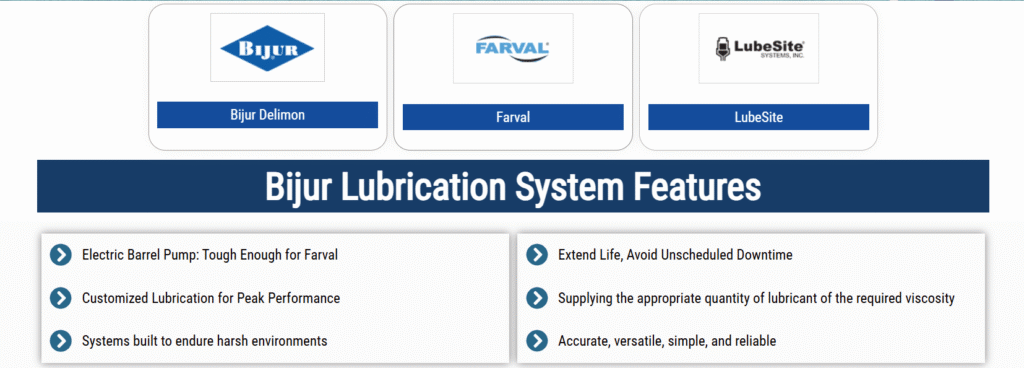When it comes to industrial equipment and automotive machinery, regular maintenance is critical to ensuring peak performance and longevity. One of the most important aspects of preventive maintenance is an engine oil change. Whether you’re managing a fleet of trucks or operating heavy-duty industrial machines, changing engine oil at the right intervals can significantly reduce downtime, lower maintenance costs, and increase operational efficiency.
In this comprehensive guide by BijurExim, a trusted supplier of lubrication systems and industrial maintenance solutions, we’ll dive deep into everything you need to know about engine oil changes — from why it’s essential, to how to do it properly, and the best products to use for optimal results.
What Is an Engine Oil Change?
An engine oil change is the process of draining old, contaminated oil from an engine and replacing it with fresh, clean oil. This is typically accompanied by the replacement of the oil filter to ensure no old contaminants remain in the system.
Engine oil acts as a lubricant, reducing friction between moving parts, preventing overheating, and protecting engine components from wear and corrosion.
Automatic lubricators for Engine oil

Why Is an Engine Oil Change Important?
1. Lubrication and Reduced Friction
Engine oil forms a protective film between metal parts, ensuring minimal friction. Over time, oil degrades and becomes less effective, leading to increased wear and tear.
2. Cooling the Engine
In addition to reducing friction, oil absorbs heat from engine components. Old oil loses its thermal conductivity and may lead to overheating.
3. Cleaning Engine Components
Fresh engine oil carries away debris and deposits, keeping your engine clean. Old oil becomes saturated with contaminants and loses this cleaning capability.
4. Improving Fuel Efficiency
A well-lubricated engine runs more efficiently, consuming less fuel. Neglecting oil changes can reduce your machine’s fuel economy.
5. Extending Engine Life
Routine oil changes can significantly extend the operational life of your machinery by reducing mechanical wear and corrosion.
How Often Should You Change Engine Oil?
The recommended oil change interval depends on several factors:
- Type of machinery or vehicle
- Type of oil used (mineral, synthetic, semi-synthetic)
- Operating conditions (dust, temperature, load)
- Manufacturer guidelines
General Guidelines:
- Cars & Light Trucks: Every 5,000 to 10,000 km
- Heavy Machinery: As per OEM guidelines or every 250–500 hours of operation
- Industrial Generators: Every 100–200 operating hours
Always refer to your equipment’s OEM maintenance schedule for the most accurate recommendation.
Signs Your Engine Needs an Oil Change
Look out for these indicators:
- Dark or dirty oil
- Engine noise or knocking
- Exhaust smoke
- Oil change light or check engine light
- Decreased performance or fuel economy
Step-by-Step: How to Perform an Engine Oil Change
Changing engine oil is a relatively straightforward process if done with the right tools and safety precautions:
Step 1: Gather Materials
- Suitable engine oil (as per manufacturer spec)
- New oil filter
- Oil drain pan
- Funnel
- Wrench
- Gloves and safety goggles
Step 2: Warm the Engine
Run the engine for 5-10 minutes to warm the oil, which helps it drain more easily.
Step 3: Drain Old Oil
- Turn off the engine.
- Place the drain pan under the oil drain plug.
- Remove the plug and allow oil to drain completely.
Step 4: Replace Oil Filter
Unscrew the old filter, apply fresh oil to the gasket of the new filter, and screw it in place securely.
Step 5: Add New Oil
Use a funnel to pour in new oil. Refer to the manual for the correct quantity and viscosity.
Step 6: Check Oil Level
Run the engine for a minute, turn it off, and then use the dipstick to ensure the oil is at the correct level.
Step 7: Dispose of Old Oil Responsibly
Never dump used oil. Recycle it at a local auto parts store or recycling center.
Best Engine Oils for Industrial Use
At BijurExim, we provide a curated range of engine oils and lubricants suitable for various applications. Here are some of our top-rated products:
✅ Fuchs Renolin Series
High-performance oils suitable for compressors, hydraulic systems, and heavy machinery.
✅ Shell Rotella T Series
Popular for its advanced wear protection and suitability for diesel engines in heavy-duty trucks.
✅ Castrol Vecton
Ideal for high-load applications, featuring oxidation stability and TBN retention.
✅ Bijur Delimon Lubrication Systems
We also supply automatic lubrication systems that can maintain proper oil levels and optimize engine performance.
Explore our full range at bijurexim.com.
Common Mistakes to Avoid During an Engine Oil Change
- Using the wrong oil grade
- Over-tightening the oil filter
- Not replacing the drain plug washer
- Ignoring manufacturer specs
- Improper disposal of old oil
Conclusion: Stay Ahead with Regular Oil Changes
Performing regular engine oil changes is a simple yet powerful way to protect your machinery investment. From ensuring smooth operations to preventing costly repairs, it’s one of the most effective forms of maintenance.
Trust BijurExim as your go-to partner for high-quality lubricants, engine oils, and automated lubrication systems. With decades of experience serving industries like automotive, steel, food processing, mining, and machine tools, we help businesses enhance performance and reliability.
RELATED POST’S
Worm Gears in Industry: How They Work and Why You Need Them – READ MORE
Lubricants That Power Industry: How Bijur Exim Leads the Way in Centralized Lubrication Solutions – READ MORE
